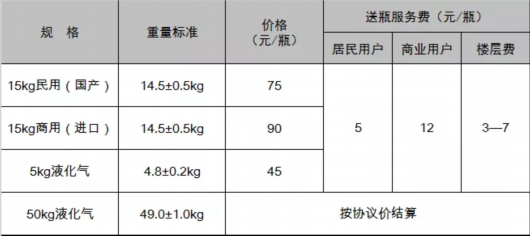иҝҷйҮҢзҡ„е…ій”®йғЁеҲҶжҳҜ resolveImportPath еҮҪж•°пјҢе®ғе®һзҺ°дәҶе°Ҷ Node зұ»еһӢзҡ„еј•е…Ҙж”№дёә Deno зұ»еһӢзҡ„еј•е…ҘгҖӮйҰ–е…ҲпјҢе®ғжЈҖжҹҘи·Ҝеҫ„жҳҜеҗҰеҜ№еә”дәҺзЈҒзӣҳдёҠзҡ„е®һйҷ…ж–Ү件;еҰӮжһңеӨұиҙҘдәҶпјҢе®ғдјҡе°қиҜ•ж·»еҠ .ts еҗҺзјҖ;еҰӮжһңеӨұиҙҘпјҢе®ғе°қиҜ•ж·»еҠ /index.ts;еҰӮжһңеӨұиҙҘпјҢе°ұдјҡжҠӣеҮәдёҖдёӘй”ҷиҜҜ гҖӮ
жіЁе…Ҙ Node.js е…ЁеұҖеҸҳйҮҸжңҖеҗҺдёҖжӯҘжҳҜеӨ„зҗҶ Node.js е…ЁеұҖеҸҳйҮҸ гҖӮйҰ–е…ҲпјҢжҲ‘们еңЁйЎ№зӣ®зӣ®еҪ•дёӯеҲӣе»әдёҖдёӘ global .deno.ts ж–Ү件 гҖӮиҝҷдёӘж–Ү件еә”иҜҘеҜјеҮәеҢ…дёӯдҪҝз”Ёзҡ„жүҖжңү Node.js е…ЁеұҖеҸҳйҮҸзҡ„е…је®№зүҲжң¬ гҖӮ
export {Buffer} from "<https://deno.land/std@0.114.0/node/buffer.ts>";export {process} from "<https://deno.land/std@0.114.0/node/process.ts>";еӨҚеҲ¶д»Јз Ғзј–иҜ‘еҗҺзҡ„ AST жҸҗдҫӣдәҶдёҖз»„жәҗж–Ү件дёӯдҪҝз”Ёзҡ„жүҖжңүж ҮиҜҶз¬Ұ гҖӮжҲ‘们е°ҶдҪҝз”Ёе®ғеңЁд»»дҪ•еј•з”Ёиҝҷдәӣе…ЁеұҖеҸҳйҮҸзҡ„ж–Ү件дёӯжіЁе…Ҙ import иҜӯеҸҘ гҖӮ
const sourceDir = "./src"; const destDir = "./edgedb-deno"; const pathRewriteRules = [{match: /^src/index.node.ts$/, replace: "mod.ts"},{match: /^src//, replace: "_src/"}, ];+ const injectImports = {+ imports: ["Buffer", "process"],+from: "src/globals.deno.ts",+ };// ... const rewrittenFile: string[] = []; let cursor = 0;+ let isFirstNode = true;parsedSource.forEachChild((node: any) => {+if (isFirstNode) {// only run once per file+isFirstNode = false;++const neededImports = injectImports.imports.filter((importName) =>+parsedSource.identifiers?.has(importName)+);++if (neededImports.length) {+const imports = neededImports.join(", ");+const importPath = resolveImportPath(+relative(dirname(sourcePath), injectImports.from),+sourcePath+);+const importDecl = `import {${imports}} from "${importPath}";nn`;+const injectPos = node.getLeadingTriviaWidth?.(parsedSource) ?? node.pos;+rewrittenFile.push(file.slice(cursor, injectPos));+rewrittenFile.push(importDecl);cursor = injectPos;}}еӨҚеҲ¶д»Јз ҒеҶҷж–Ү件жңҖеҗҺпјҢжҲ‘们еҮҶеӨҮе°ҶйҮҚеҶҷзҡ„жәҗж–Ү件еҶҷе…Ҙзӣ®ж Үзӣ®еҪ•дёӯзҡ„ж–°дё»зӣ®еҪ• гҖӮйҰ–е…ҲпјҢжҲ‘们еҲ йҷӨжүҖжңүзҺ°жңүзҡ„еҶ…е®№пјҢ然еҗҺдҫқж¬ЎеҶҷе…ҘжҜҸдёӘж–Ү件 гҖӮ
+ try {+await Deno.remove(destDir, {recursive: true});+ } catch {} const sourceFilePathMap = new Map<string, string>(); for (const [sourcePath, destPath] of sourceFilePathMap) {// rewrite file+await Deno.writeTextFile(destPath, rewrittenFile.join("")); }еӨҚеҲ¶д»Јз ҒжҢҒз»ӯйӣҶжҲҗдёҖдёӘеёёи§Ғзҡ„жЁЎејҸжҳҜдёәеҢ…зҡ„ Deno зүҲжң¬з»ҙжҠӨдёҖдёӘеҚ•зӢ¬зҡ„иҮӘеҠЁз”ҹжҲҗзҡ„ repo гҖӮеңЁжҲ‘们зҡ„дҫӢеӯҗдёӯпјҢжҜҸеҪ“дёҖдёӘж–°зҡ„жҸҗдәӨеҗҲ并еҲ° master дёӯж—¶пјҢжҲ‘们е°ұеңЁ GitHub Actions дёӯз”ҹжҲҗ edgedb-js зҡ„ Deno зүҲжң¬ гҖӮ然еҗҺпјҢз”ҹжҲҗзҡ„ж–Ү件被еҸ‘еёғеҲ°еҗҚдёә edgedb-deno зҡ„е§ҠеҰ№еӯҳеӮЁеә“ гҖӮдёӢйқўжҳҜжҲ‘们зҡ„е·ҘдҪңжөҒж–Ү件зҡ„з®ҖеҢ–зүҲжң¬ гҖӮ
# .github/workflows/deno-release.ymlname: Deno Releaseon:push:branches:- masterjobs:release:runs-on: ubuntu-lateststeps:- name: Checkout edgedb-jsuses: actions/checkout@v2- name: Checkout edgedb-denouses: actions/checkout@v2with:token: ${{ secrets.GITHUB_TOKEN }}repository: edgedb/edgedb-denopath: edgedb-deno- uses: actions/setup-node@v2- uses: denoland/setup-deno@v1- name: Install depsrun: yarn install- name: Get version from package.jsonid: package-versionuses: martinbeentjes/npm-get-version-action@v1.1.0- name: Write version to filerun: echo "${{ steps.package-version.outputs.current-version}}" > edgedb-deno/version.txt- name: Compile for Denorun: deno run --unstable --allow-env --allow-read --allow-write tools/compileForDeno.ts- name: Push to edgedb-denorun: cd edgedb-deno && git add . -f && git commit -m "Build from $GITHUB_SHA" && git pushеӨҚеҲ¶д»Јз Ғedgedb-deno еҶ…йғЁзҡ„еҸҰдёҖдёӘе·ҘдҪңжөҒдјҡеҲӣе»әдёҖдёӘ GitHub еҸ‘еёғпјҢеҸ‘еёғдёҖдёӘж–°зүҲжң¬еҲ° deno.land/x гҖӮиҝҷз•ҷз»ҷиҜ»иҖ…дҪңдёәз»ғд№ пјҢе°Ҫз®ЎжӮЁеҸҜд»ҘдҪҝз”ЁжҲ‘们зҡ„е·ҘдҪңжөҒдҪңдёәиө·зӮ№ гҖӮ
жҖ»з»“иҝҷжҳҜдёҖдёӘеҸҜе№ҝжіӣеә”з”Ёзҡ„жЁЎејҸпјҢз”ЁдәҺе°ҶзҺ°жңүзҡ„ Node.js жЁЎеқ—иҪ¬жҚўдёә Deno жЁЎеқ— гҖӮеҸӮиҖғ edgedb-js repoиҺ·еҫ—е®Ңж•ҙзҡ„ Deno зј–иҜ‘и„ҡжң¬пјҢи·Ёе·ҘдҪңжөҒ гҖӮ
жҺЁиҚҗйҳ…иҜ»
- еҰӮдҪ•жү№йҮҸдҝ®ж”№ж–Ү件еҗҚ
- KaliдёҺзј–зЁӢпјҡеҰӮдҪ•е®үиЈ…KALI LINUXдёӯж–ҮжӢјйҹіиҫ“е…Ҙжі•пјҹ
- VS Code - Vim жҸ’件иҮӘеҠЁеҲҮжҚўиҫ“е…Ҙжі•
- ж•ҷиӮІеӯ©еӯҗзҡ„е°Ҹж•…дәӢз®Җзҹӯ?жңүе…іж•ҷиӮІзҡ„е°Ҹж•…дәӢ
- еҰӮдҪ•еҺ»йҷӨиғ¶еёҰзІҳиҙҙеҗҺз•ҷдёӢзҡ„з—•иҝ№пјҹ
- еҲҶжүӢжҲ–зҰ»е©ҡпјҢеҪ©зӨјеҰӮдҪ•йҖҖиҝҳ
- ејҖиҪҰйӮЈд№Ҳд№…пјҢдҪ зҹҘйҒ“иҜҘеҰӮдҪ•дҝқе…»зҲұиҪҰеҗ—пјҹ
- дәәжҲ·еҲҶзҰ»гҖҒе®ҡеұ…еӣҪеӨ–ж—¶пјҢзҰ»е©ҡиҜүи®јиҜҘеҲ°е“Ә家法йҷўиө·иҜүпјҢеҸҲиҜҘеҰӮдҪ•иҜҒжҳҺпјҹ
- еҰӮдҪ•жІ»з–—и…°й—ҙзӣҳзӘҒеҮә
- еҰӮдҪ•й”»зӮји„ёйғЁиӢ№жһңиӮҢеҘҪе‘ў

















